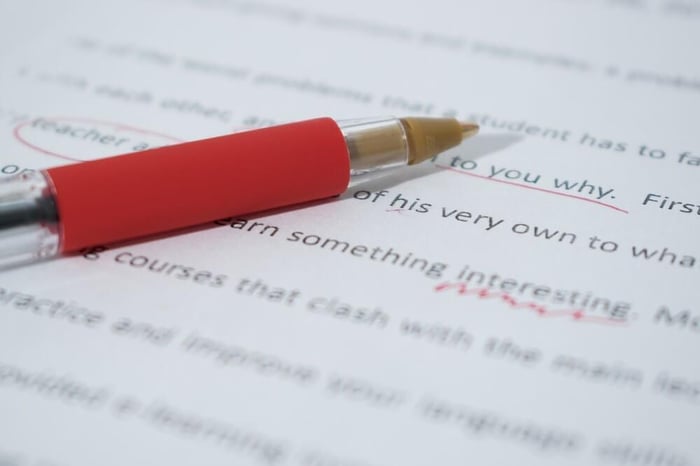
10 common mistakes to avoid when writing your personal statement
10 common mistakes to avoid when writing your personal statement
1. Pick a catchy opening line
‘I have a dream…’, ‘We shall fight them on the beaches’, ‘We choose to go to the moon’. Got your attention didn’t it? All the great speeches of the last hundred years captured the people’s imagination by first grabbing their attention and your personal statement shouldn’t be any different! The admissions team have hundreds of statements to read through every day so you need an opening line that makes you stand out. Avoid boring sentences; ‘I’ve wanted to be a doctor for as long as I can remember’. Avoid clichés; ‘I have always been interested in medicine’ and ironically, given how I started this point, try to avoid quotes because it’s just been done too many times before.
2. Stick to character count
UCAS allows you 4000 characters including spaces so use them wisely. Most of you will struggle to cut your writing down to so few words, which is why the real skill becomes choosing your content. What is important to you? What shows the reader that you understand the role of a doctor? And what shows them that you have what it takes? If on the other hand, you’re struggling to write enough, then go back to our blog post on brainstorming ideas and make sure you’ve done enough volunteering/work experience or spoken to different members of the profession for their advice.
For those who have not started writing, we offer a brainstorming session of one hour where we help you select your content, plan the structure of the personal statement and start writing with you. If on the other, you have written a bit too much, we also offer a word cutting down service to help you get back to 4000 characters. Contact us at enquiries@themsag.com with your specific situation and we will be happy to help.
3. Forget plagiarism
I really hope this one is obvious! The medical profession does not take well to plagiarism or lying on your medical school personal statement. You are trying to enter into one of the most trusted professions there is, so as a heads up they’re not going to let you in if you are seen to be untrustworthy. Same goes for gross exaggeration. If you made one cake in primary school don’t call yourself a keen baker or if you kick a ball around a field don’t sell yourself as a world-renowned footballer. These are the sorts of things they will ask about during the interview and the team will soon be able to tell if you weren’t being completely honest.
4. Do not list without expanding on your experiences
‘On my summer holiday I went to the zoo and the beach and the aquarium and the park and then we went back to school’.
Okay so I grant you this is a little bit extreme but there is a point to it I promise. One of the really common mistakes people make is to list down everything they’ve done without expanding any further on their experiences. For example; ‘For my work experience I shadowed a colorectal surgeon and was able to observe him lead the ward round, attend clinics and watch several operations including a right hemicolectomy and an anterior resection’. Okay great but this doesn’t tell me anything about you as an individual. Ask yourself; what did you learn from the experience? What skills did you see the professionals using? How do you use these same skills in your extra-circular activities? Tell us more about you or you won’t be scoring many points!
5. Show passion in your medical school personal statement
Actually using the word passion in your statement is a bit cliché so please try to avoid ‘I have always been passionate about medicine’, it’s just a bit over-used. That being said, you need to find a way to convey how much you want that place at medical school. Part of this comes from sharing your commitment to the cause through discussing your volunteering, work experience, and personal achievements. However, the rest comes from the way you talk about medicine and how you portray your desire to study it. This isn’t something that I can tell you how to do, you just need to dig deep and find a way to express how you feel. What you could do though, is ask your proofreader to check that they get a sense of your passion for the subject when they read through it.
6. Avoid poor structure
The structure is important for easing the reader through your personal statement. I’ve mentioned that admissions have hundreds of these to get through and if you make their reading experience enjoyable then you’re on to a good start. We’ve already covered how to start your statement so now let’s get to the meaty bit, how to structure your paragraphs. I find the following is a good place to start;
1. Talk about your volunteering/work experience but focus in on one particular skill or attribute that you saw being demonstrated.
2. Mention why you feel this was important in the situation or why it is important for doctors to have this skill.
3. Discuss a situation you have been in or a position you hold that has required you to demonstrate this sort of action in your own life or how this would help you to be a good doctor in the future.
Obviously, you don’t have to stick to this religiously but you get a general idea. It’s all about developing your experiences to show the reader that you understand the role of a doctor and have at least some of the skills required to become a good one.
7. Proofread again and again
Things are difficult to read if there are lots of spelling or grammar mistakes and it just looks kinda sloppy too. Make sure you proofread your final personal statement for any spelling or grammar errors! You can always use spell check to help but make sure you have it set to English UK, not the US if applying to the UK and US if applying to North America. And do ask a family member or friend or teacher to help you out because after a while it does get hard to spot your own mistakes.
8. Punctuation is key
Have you ever read a sentence and the writer just goes on and on about something and you get to the stage where you’ve lost the point of the sentence but they are still rabbiting on with little sign of ever stopping which is especially difficult when they don’t even put in any commas so you run out of breath before you can finally reach the end. You get the point. Try to avoid really long sentences. It just makes your medical school personal statement difficult to read. But too short sentences are not great either. Also avoid brackets on every line as again, it makes it hard to write and also looks like you didn’t put enough effort incorporating the content from the brackets inside the personal statement.
9. Not showing insights
Being a doctor isn’t always easy. I still think it’s one of the best jobs in the world but it doesn’t mean I don’t want to hit my head against a brick wall on some days. It’s therefore useful to show that you understand some of the challenges you might face be it managing your time, dealing with problematic patients or difficult ethical scenarios. You will most likely have seen examples of some of these in your work experience or dealt with similar situations in your personal life so it might be worth including these in your personal statement. Presenting Medicine as the perfect ideal job without mentioning downsides is a common mistake we don’t want you to do!
10. Finish with a strong conclusion
You’ve made it so far! You’ve just got those pesky few lines of a conclusion to write which in my opinion is one of the hardest parts to do well. My advice is to keep it short and sweet and try to neatly summarise the skills and qualities you have talked about in your other paragraphs. One common mistake people make is to try to add new information to their conclusion. Your medical school personal statement is your story and every good story has an ending be it happy or sad so don’t let your statement finish without one. And don’t forget that the MSAG experts can help you with editing and provide detailed feedback and advice and your medical school personal statement! If you're looking for support in writing your personal statement contact us today!



